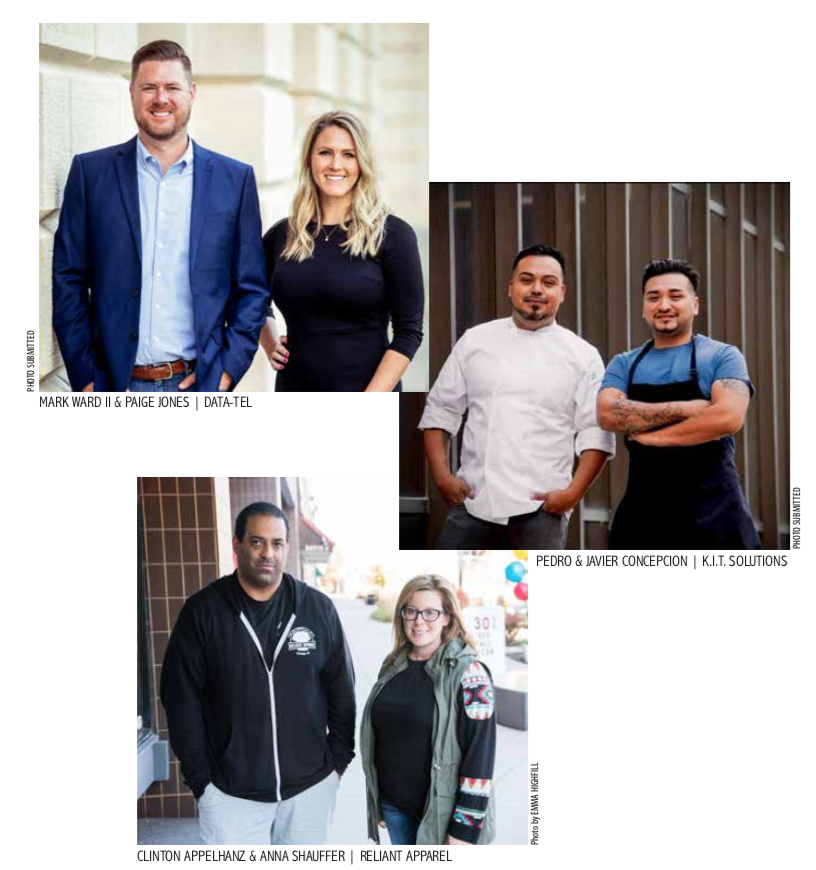Mental Health: Laura Sidlinger, DNP, APRN-C
The Coronavirus has caused business leaders to face enormous challenges. From the beginning of the pandemic, they have made financial and workforce decisions which impacted nearly every role in organizations. Some decisions were necessary to maintain viability so the business could survive. Others were strategic and forced businesses to revise business plans to meet new needs.
We are now at a new point in the pandemic where there is hope for an end— the vaccines will be widely available soon. A return to “normal” is within site. A critical element to assess now is our people. Friends, family, colleagues have all been trying to maintain, but are approaching their personal limits. There have been many discussions of COVID-19 Fatigue, but this article hopes to give practical strategies for recognizing a level of distress in ourselves and others and resources for healing.
MENTAL DISTRESS SIGNS
Warning signs of impending decompensation include loss of positive emotional connections. This may be loss of joy in things that used to make us happy, shutting out people with whom we frequently engaged, and simply no longer being able to smile. People may report feeling more vulnerable, isolated, or abandoned.
Signs of further decline may include becoming immune to human suffering around us or on the news. These individuals only function in survival mode—just doing the minimum. Persons entering this phase of trauma response may develop more unhealthy responses such as poor sleep patterns, unhealthy eating, loss of physical activity/exercise, and misuse of alcohol or other substances. In business, they may miss deadlines or produce work output which is of lower quality than their norm. These negative results tend to continue a downward cycle unless there is an intervention.
As leaders, it is important to offer many types of relief and intervention to those around us to maintain optimal mental health in these extraordinary times. Businesses have adapted some roles to “work-from-home” options to keep employees near family members in need and to minimize potential virus transmission at the workplace. Some employees feel disconnected from work peers and undervalued when not present on-site.
Encourage celebration: It is important to create opportunities to connect on a personal level. Consider giving a few minutes during the next Zoom staff meeting to share “joys and announcements.” Seek opportunities to celebrate with your staff. It is important to remember in corporate culture that individual’s matter.
Provide healthy options: For those in the office, stock the kitchen with healthy, individually wrapped snacks that can be taken back on a walk break (indoors or outdoors, if possible), fruit or bottles of water/low calorie sports drinks. For persons working from home, allow for times to log off and take a mental health break during the day.
Maintain schedules and routine: This includes getting up at the same and preparing to go to the office, even if you remain at home. Eat lunch away from your workspace. Go outside or at least to a window on breaks to disconnect from the problem of the moment.
Physical activity and exercise: Not everyone is ready to return to the gym so at home workouts or yoga through various apps or businesses may fill the need to destress and relax. There are mediation apps and many exercise options on YouTube.
Promote remote support groups: Community groups have found ways to continue to meet through conferencing platforms such as Zoom. Encourage employees to continue social groups safely such as book clubs, Bible studies/worship on-line, and 12-step programs to name a few.
Journaling and note writing: Putting words on paper is a powerful act. It requires mindfulness (being fully present in the moment) to express oneself in writing. A gratitude journal can simply be a daily list of things you grateful for on your day planner or it could be a more formal prose in a notebook or personal blog. These can be powerful keepsakes of a difficult time and reflections of overcoming adversity.
Phone calls: we have become an electronic society, but not everyone communicates well via text or email. Phone calls to friends or family, especially those who may not engage with technology are very powerful.
News in moderation: Ignoring the realities in our community is as dangerous as overdosing on the 24-hour news cycle. It is important to know the impact the coronavirus is having on our resources and business partners, but we must assign time and limits to the intake of this information. Although many of us have “breaking news” apps set up on our smart devices, we really do not need them to optimally function. Consider disconnecting and viewing news at a specific time and from a trusted source.
Use of personal leave time: Our staff are working on overdrive in many businesses. It is important to encourage them to take personal time when available to prevent burnout and compassion fatigue.
Promote Employee Assistance Programs: When supervisors or managers identify staff who are not coping well with the pandemic or other troubles, offer and encourage the use of EAPs. If your company does not have a formal program, community mental health providers can be utilized.
If you, a colleague, or loved one experiences a mental health emergency please, REACH OUT! Valeo Behavioral Health Care is the community mental health center for adults, and available 24-hours. The Crisis Residence at 400 SW Oakley Avenue is available at all times and a live mental health provider is available in person, or via through our Crisis Hotline at 785-234-3300.
For program or service specific questions during regular business hours, call 785-233-1730.




